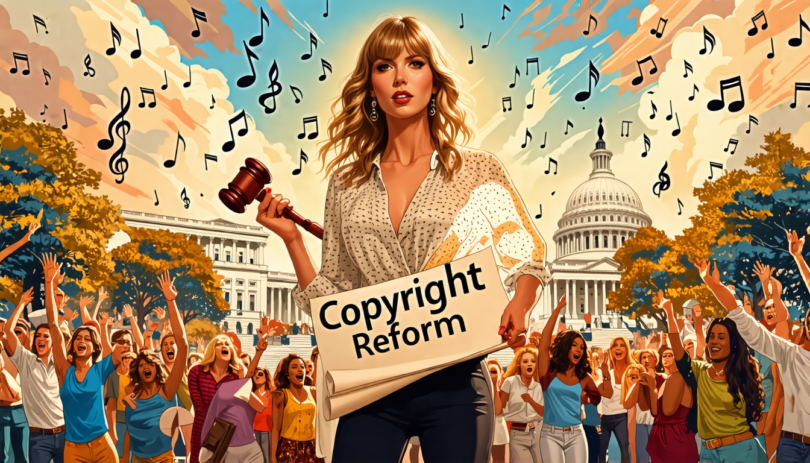Taylor Swift Transforms Copyright Law and Bolsters Artist Empowerment
In an era where artistic control and copyright management often hang in a delicate balance, Taylor Swift stands out not just for her chart-topping music but also for her groundbreaking influence on copyright law and artist empowerment. This transformation underscores a pivotal shift towards artists retaining more control over their work, setting precedents that ripple across the music industry.
The Catalyst of Change: A Background Snapshot
The journey began around 2005 when Taylor Swift signed her first record deal with Big Machine Records, not foreseeing the future complications over the ownership of her masters (the original recordings of her music). Fast forward to 2019, when her masters were sold to talent manager Scooter Braun’s Ithaca Holdings as part of a $300 million deal with Big Machine Records. Swift’s unabashed disapproval of the sale, primarily because she was not given an opportunity to buy her own recordings, ignited a discussion about artists’ rights and control over their creative outputs.
Re-recording and Reclaiming Control
Swift’s response was both strategic and bold: re-recording her first six albums, known as Taylor’s Versions, to claim ownership of her new recordings. This not only enabled her to control the use of her music but also cleverly used copyright law to her advantage. By re-recording her work after the original contracts’ stipulated period (usually around 5-7 years post the initial release), Swift could bypass the control her former label had over her original albums.
Impacts on Copyright Law and Music Industry Norms
Swift’s actions marked a significant cultural shift in how music contracts are perceived and executed. She highlighted a model for leveraging copyright terms to an artist’s advantage, showing that copyright laws when wisely navigated, can empower artists against potential exploitation by labels.
Moreover, Swift’s public battle and subsequent strategy influenced many artists to rethink their approaches to contract negotiations. Increasing numbers of emerging artists are now advocating for clauses allowing them more control and eventual ownership of their masters, inspired by Swift’s template.
Broader Implications for Artist Empowerment
The “Swift effect” extends beyond legal templates. It symbolizes a larger movement towards artist empowerment and transparency in the music industry. Taylor Swift’s vocal opposition to inequitable treatment and her proactive approach to reclaim her artistic rights foster a discussion about the economic and creative rights of artists globally.
This has encouraged a surge in educational initiatives aimed at informing artists about their copyrights, urging them to understand and actively participate in the legal aspects of their music careers. Entities like the Recording Academy and other artist advocacy bodies have amplified their efforts in educating artists about the importance of copyright ownership and control.
Conclusion: A New Era in Music Copyright
Taylor Swift has not only reshaped her music legacy but also redefined the norms of music copyright. Her influence serves as a beacon for artist rights, and her case is a profound example of using legal frameworks to challenge traditional industry norms, promoting a shift towards greater empowerment and accountability in the music industry.
Swift’s fight for her musical rights encourages artists to recognize their value and potentials in their artistic outputs, ensuring they have a say in how their creations are used and managed. Thus, Taylor Swift exemplifies how individual actions can spur systemic change, steering the music industry towards a more equitable and artist-centric future.







